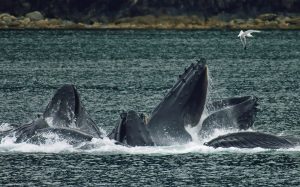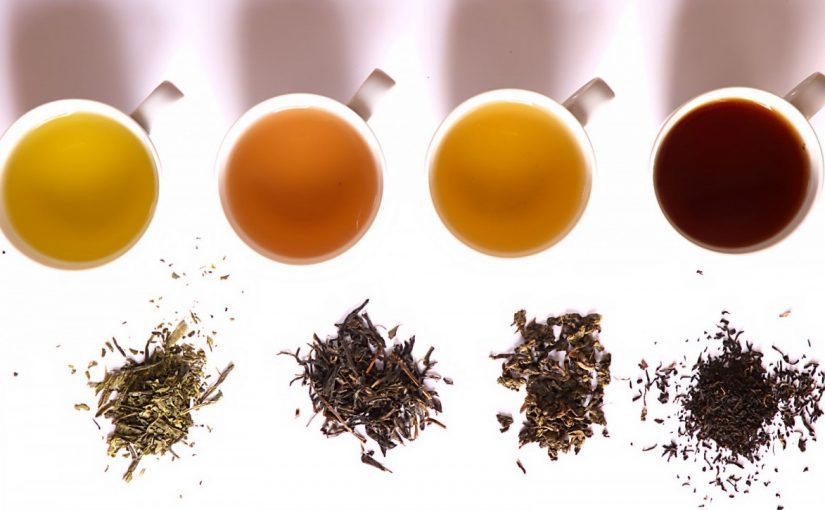This was one of the most interesting weeks I’ve had the privilege of in my education. To begin the week, I was working on my narrative self-evaluation and trying to juggle a million personal projects. But I brought a fresh mind (though almost definitely not enough sleep) to class on Tuesday, and efforts to stay positive paid off. I had a great class, thoroughly enjoyed our tea tasting. Sarah suggested I write about our experience with the Week 6 tea tasting because of the unique social dynamic it manufactured.
As we drank our pu-er – some raw and some cooked, exploring multiple steepings and a range of complex and earthy flavors, we got somewhat giggly. As the tasting went on, we asked more questions, opened up, became vulnerable and silly and exploratory. It in many ways mimicked many of the symptoms of slight drunkenness, and I don’t understand why. I certainly enjoyed it (especially as tea drunkenness doesn’t seem to come with a hangover!) despite my inability to articulate exactly what it was. I left class that afternoon in a pleasant daze, and went on to dinner and the rest of my evening with an overwhelming sense of calm contentedness.
I was excited to meet with Sarah for my mid-quarter evaluation in the morning (boy did that sneak up), and after meeting to discuss the future of my ILC following through to next quarter, I attended a few hours of Farmworker Justice Day and hear about the current work with the CCBLA.
After that, I attended an incredible, life changing, and transformative talk by Dr. Alexis Pauline Gumbs. You can (and should) watch the full video of her talk here. She is a scholar, poet, author, speaker, and artist specializing in black feminist narratives and queerness. Her website can be found here and I highly recommend you explore it and her writings.

As she spoke from her new (and yet to be published book) she engaged us in what she described as an “echolocation re-memory oracle” based on whale communication which I could neither define nor describe to you, but if you’re interested in some possible explanations you can find them here, here, and here. She spoke a word from a poem read at the beginning of her presentation, asked us to do an out-loud free-association game (as she described, “like a free association…if we were free”), selected a triggering word from the audience, searched it in her manuscript document, and read a surrounding passage. So much of what she read was (for lack of a better phrase) blowing my mind, and I scribbled down verbatim as much of what she said as I possibly could. Below are some of her words (and in some cases context) that I found particularly memorable, triggering, or at least worth some unpacking. Let me know what strikes your fancy here! Just a few of my absolute favorite and most provoking quotes are bolded.
In reference to the idea of human communication (echolocation) across great distances “there is no sound I cannot travel through.”
“[we must learn] to open and shut our mouths appropriately.”
“look at them when they are silent. it’s almost like it hurts to be so soft.”
The following quotes relate to a passage describing the transatlantic slave trade from the perspective of an enslaved person crossing the ocean in the hold of a ship: “we were preserved and packaged flesh.” “they had thought themselves the owners of their bodies.” Then, she goes on to describe the enslavement once landed in the Americas: “those hands that wanted to do and make…refined reuse into ritual.”
“scientists who had never understood dark matter [sought to measure it]” in which the dark matter exists both as the dark other, the dark body, the soul, the abyss, and the very fabric of space – the existence of all of these things is intertwined in Gumbs’ writing.
“they remembered the selves they had sent across generations.”
“welded by her intention”
“we scale the edges of our knowing.”
“there was the face she thought was hers when she saw it in her dreams.”
“do like the colonizers did and let the pheromones override the visual”
“not without effort, but without force”
she describes prison tattoos as “rebirthmarks” and says “even when their skin was stolen they remembered the maps and went within.”
“black feminist metaphysics, which is to say: breathing”
“the dark feminine, which is to say: everything”
“we violate the trust of being born.”
“what was in them [poets] that made work more food than food was?”
“they say it’s about sea level, but the sea doesn’t have to level with you.”
(last note: the choice not to capitalize the beginning of quotes was intentional; so far in Gumbs’ published works, she chooses not to capitalize the first letters of new sentences á la bell hooks or e.e. cummings)
Gumbs, D. P. (Writer). (2017, February 15). After Brightest Star. Live performance in Washington, Olympia.
Spoken word interactive lecture including excerpts from the author’s upcoming book M Archive: After the End of the World
